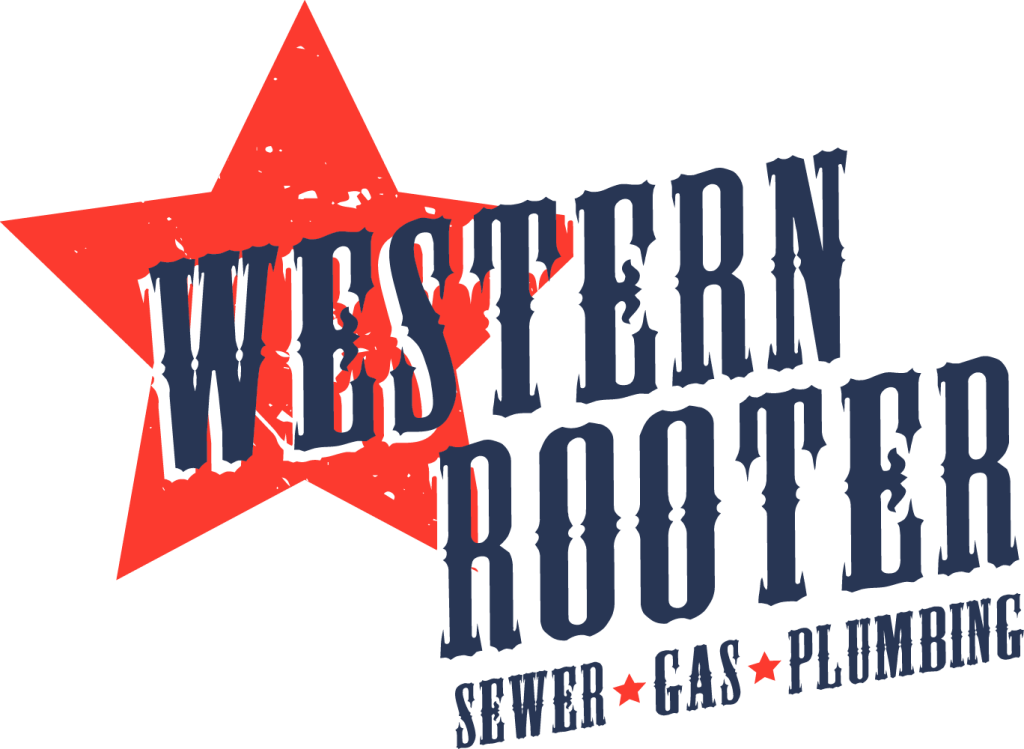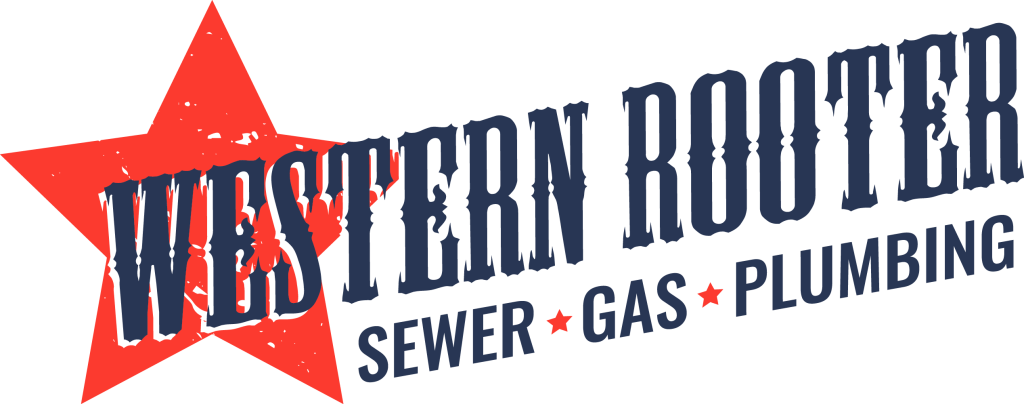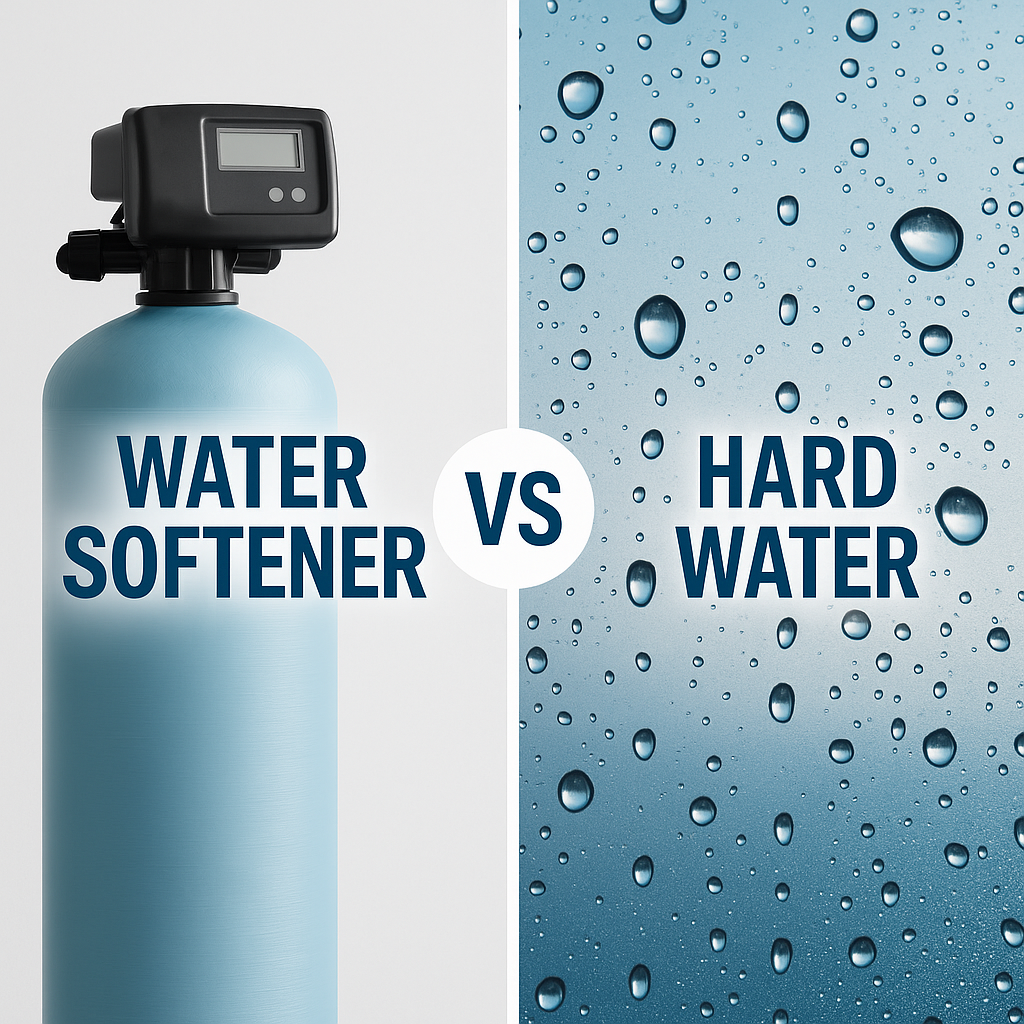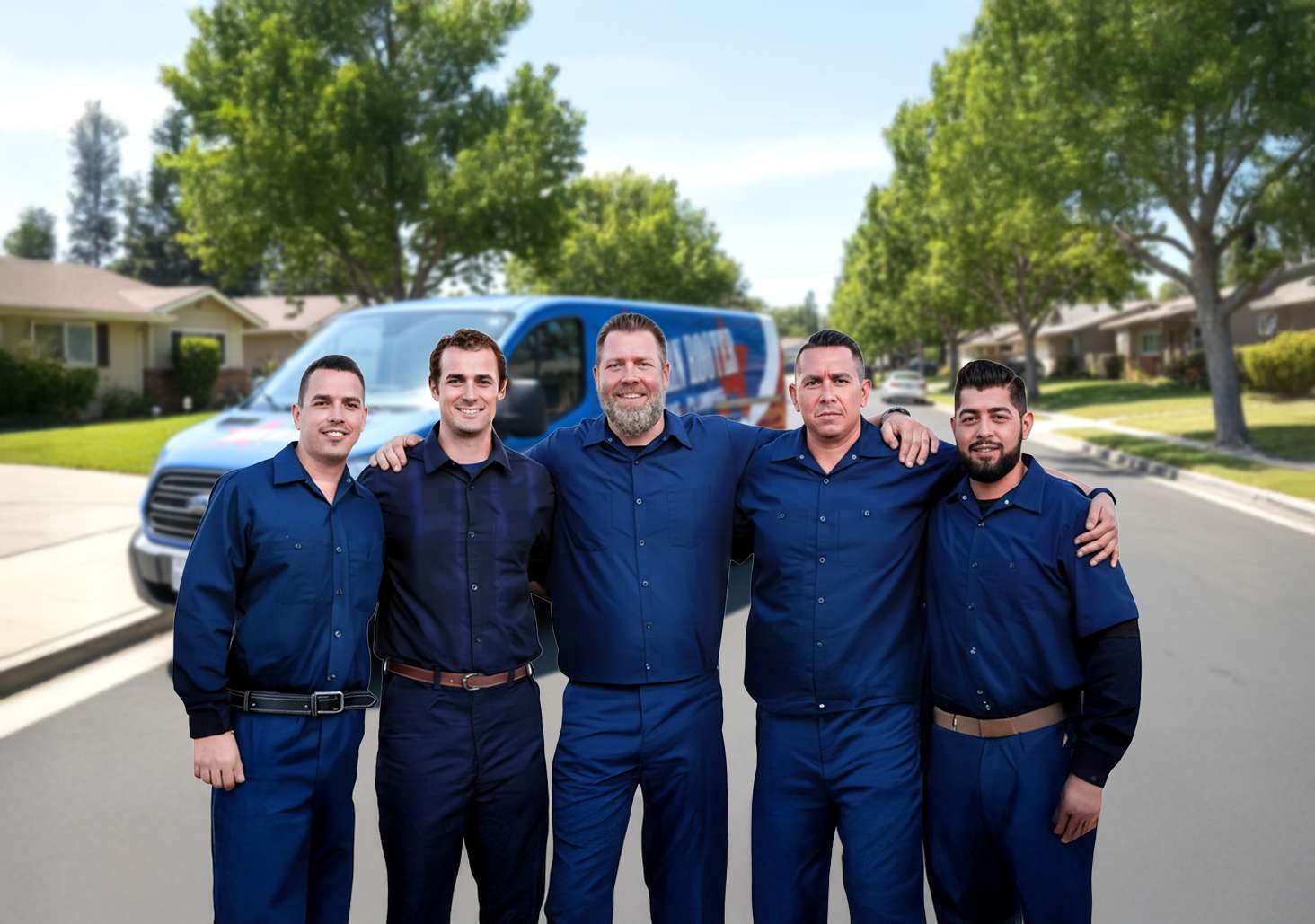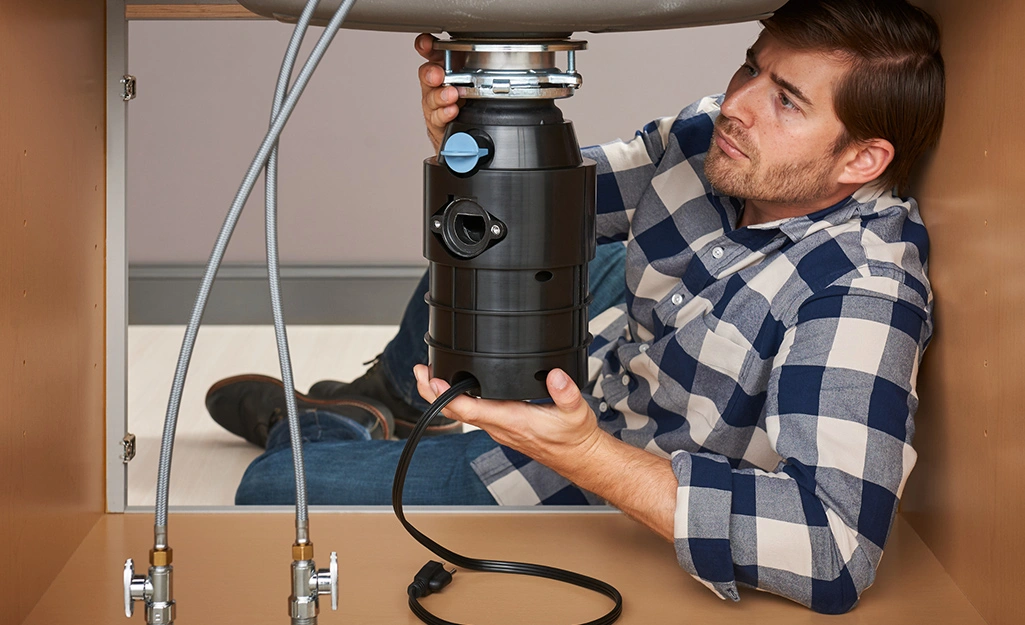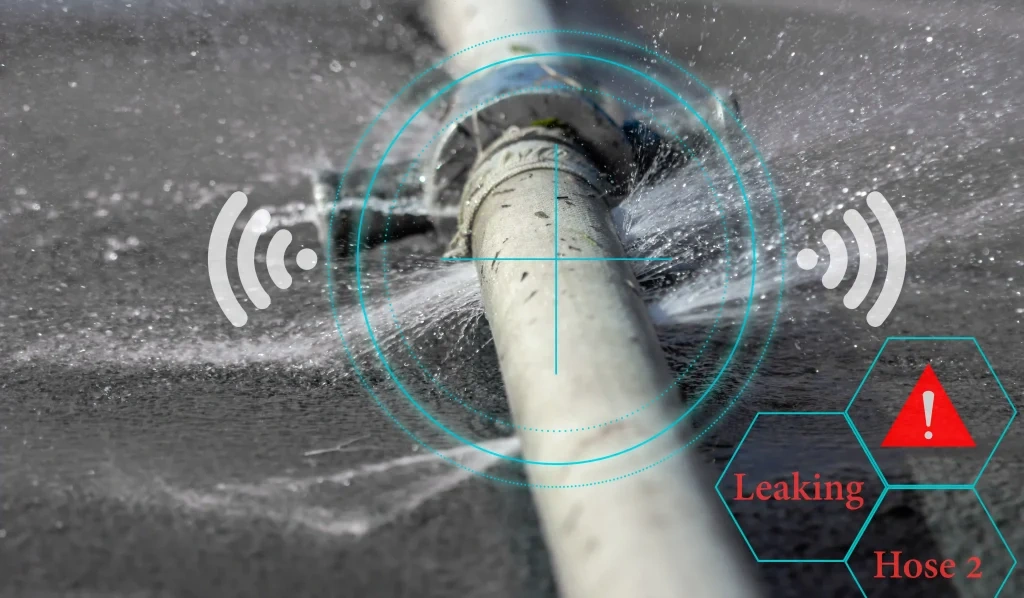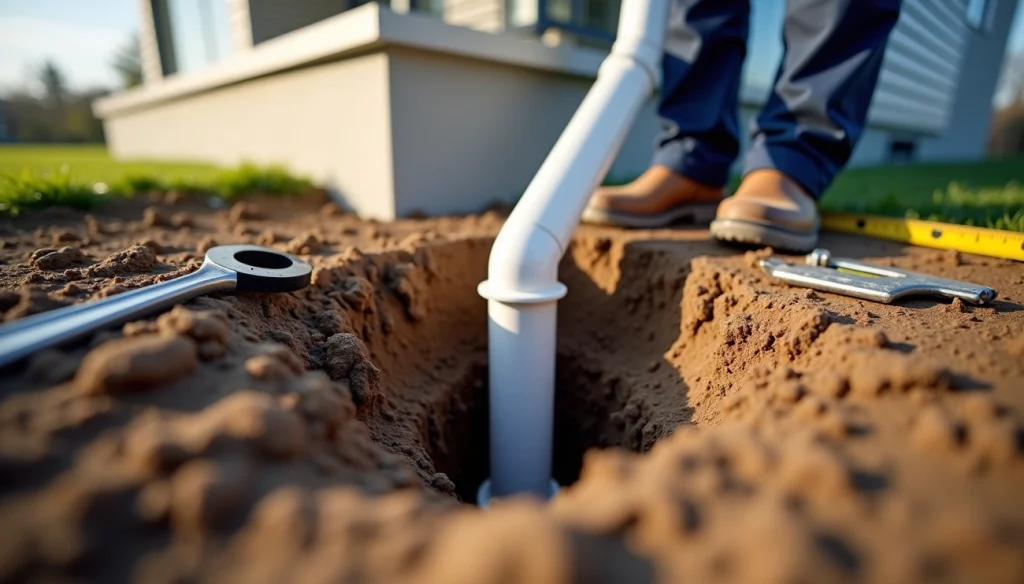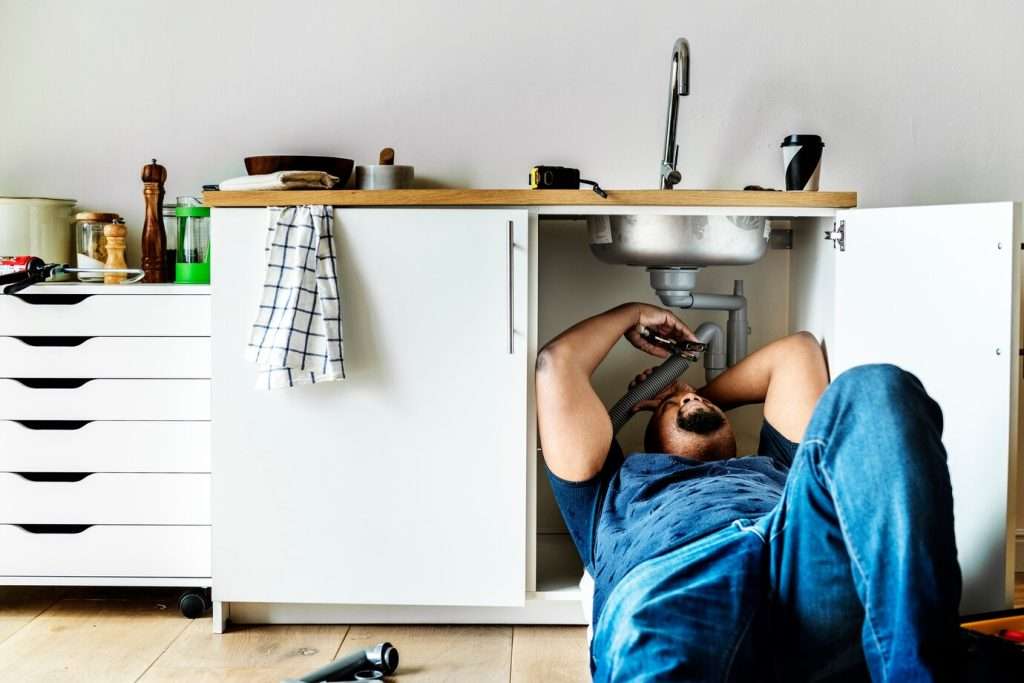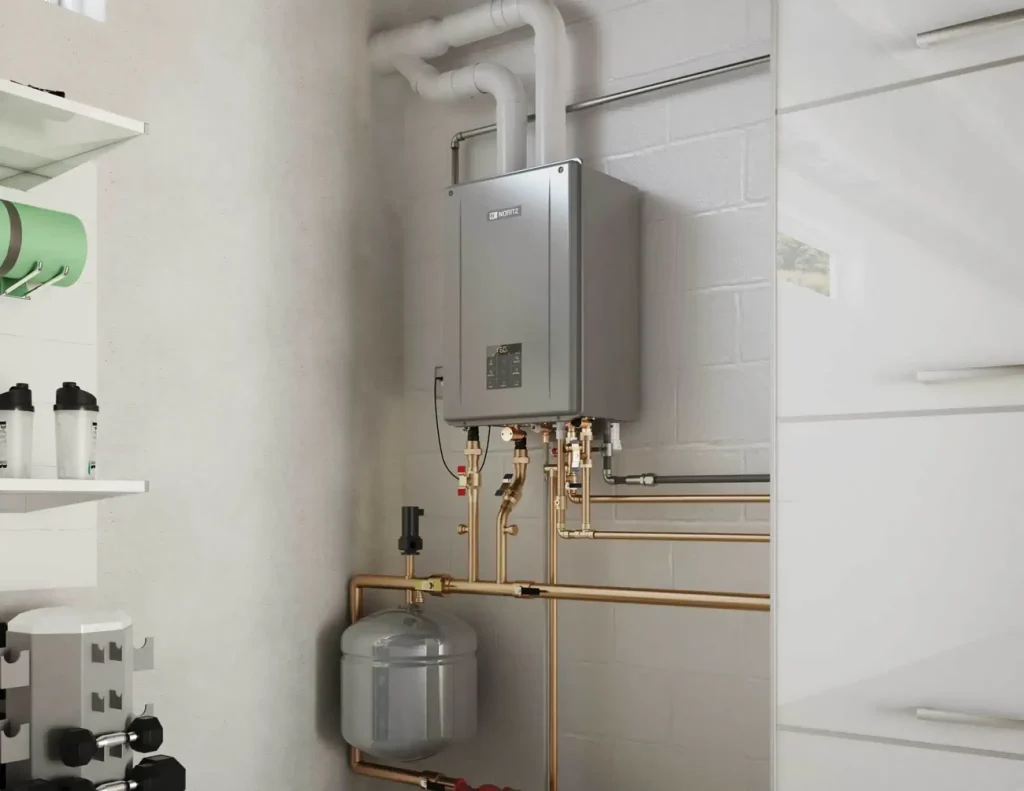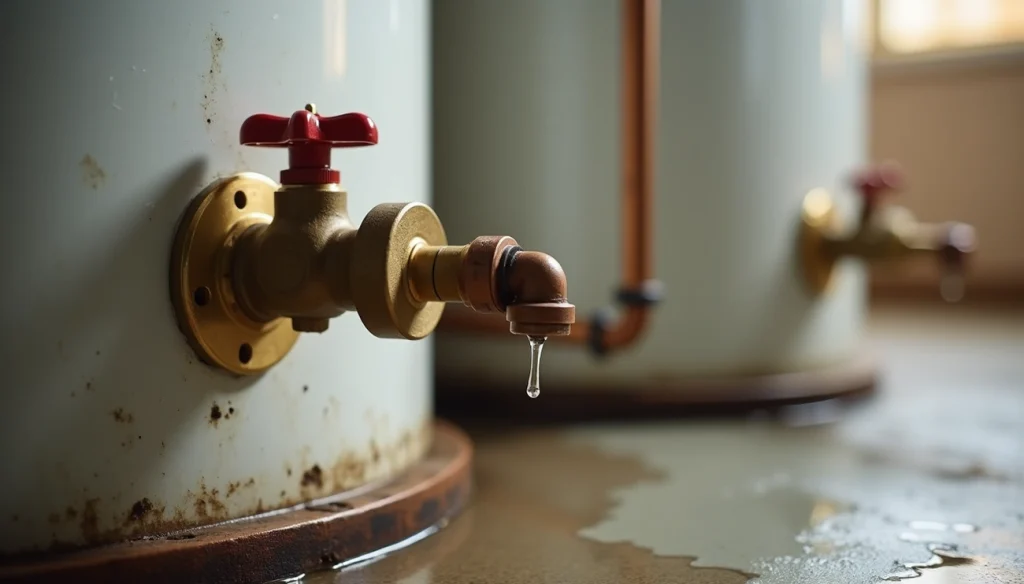Your daily life might change when you think over water softener pros and cons. The U.S. Geological Survey shows that hard water affects all but one of these American homes – about 85%. You probably face this problem right now without knowing it. When water contains more than 7 grains per gallon of minerals like calcium and magnesium, it leaves visible signs throughout your home.
A water softener tackles these excess minerals through an ion exchange process and brings many benefits to your household. Softened water prevents scale buildup in pipes and helps your appliances last longer. It’s also great for your skin’s and hair’s health. The advantages are clear – lower energy bills and no more dry skin problems. But some drawbacks exist too. These systems waste up to 120 gallons of water for every 1,000 gallons they process. They also raise sodium levels, which could worry people with high blood pressure. The initial investment ranges from $300 to $6,000, and this price tag makes many homeowners think twice.
Mineral stains on fixtures and appliance efficiency might frustrate you now. Getting into both sides of this water quality debate will help you make the right choice for your home. Let’s find out what works best in your case.
Understanding Hard Water vs Soft Water
The way hard and soft water differ comes down to their mineral content. This affects everything from your plumbing to your skin. Learning about these differences helps you understand why many homeowners think about water softener pros and cons before deciding on their home’s water quality.
Mineral Content: Calcium and Magnesium vs Sodium and Potassium
Hard water naturally has high levels of dissolved minerals, mostly calcium and magnesium. These minerals build up as water flows through limestone, chalk, or gypsum deposits in the ground. Soft water contains far fewer minerals—either naturally like rainwater or through treatments that remove these minerals.
These minerals matter because calcium and magnesium, while essential for health, can cause many household problems in your water supply. Water softening treatment replaces these troublesome minerals with sodium or potassium ions. This changes how your water works with soaps, appliances, and your body.
Your daily mineral intake can benefit from hard water. Two liters of tap water can give you about 6% of your daily calcium needs and 5% of magnesium requirements. Yet you need to balance these benefits against hard water’s effects throughout your home.
Water Hardness Scale: 0–60 mg/L vs 120+ mg/L
Scientists measure water hardness by mineral concentration in milligrams per liter (mg/L) or grains per gallon (gpg). Water hardness falls into these categories:
- Soft water: 0-60 mg/L (less than 3.5 gpg)
- Moderately hard: 61-120 mg/L (3.6-7.0 gpg)
- Hard water: 121-180 mg/L (7.1-10.5 gpg)
- Very hard water: Above 180 mg/L (above 10.5 gpg)
Hard water exists in much of the United States. The U.S. Geological Survey shows that 85% of American homes have hard water. Your home might need a water softener if your water measures above 7 grains per gallon or 120 mg/L to protect appliances and improve water quality.
Common Signs in Homes: Stains, Dry Skin, and Soap Scum
Hard water leaves clear signs throughout your home. You’ll notice it doesn’t mix well with soap, creating white soap scum instead of a good lather. This happens because calcium and magnesium ions break down soap’s cleaning properties and form a solid residue that sticks to surfaces.
Your bathroom surfaces aren’t the only concern. Scale builds up in plumbing systems and reduces water pressure over time. White spots appear on glassware and fixtures when water evaporates and leaves calcium deposits behind. Rust-colored stains in toilets, tubs, or sinks usually mean your water has high iron content.
Hard water affects your body too. Its minerals can remove natural oils from your skin and cause dryness, irritation, and worsen conditions like eczema and psoriasis. Your hair might feel dull, brittle, and hard to manage from mineral buildup.
These signs in your home help you understand what a water softener does. They can guide your decision about installing a water softening system for your household.
Contact Western Rooter today for a free estimate on water softening solutions for your Los Angeles or San Bernardino County home!
How Water Softeners Work
Water softeners use amazing technology to reshape the scene of problematic hard water into beneficial soft water for your home. Knowing how these systems work helps you make better decisions about water softener pros and cons that fit your needs.
Ion Exchange Process: Resin Beads and Salt Regeneration
The magic of a water softener happens through an efficient ion exchange process. The softener’s resin tank contains thousands of tiny plastic beads that create a “resin bed” – the heart of the filtration system. These beads are made of polystyrene copolymerized with divinylbenzene and have negatively charged sites that pull in positively charged minerals.
Hard water flows into the softener where resin beads coated with sodium ions catch and hold onto calcium and magnesium ions that make water hard. This swap happens because calcium and magnesium ions pack a stronger positive charge than sodium, which pushes the sodium ions off the resin beads. So the hardness minerals get stuck on the resin while sodium ions float into the water.
The resin beads eventually get full of hardness minerals and need regeneration. Here’s how it works:
- Fill: Water fills the salt storage container, dissolving salt to create a brine solution
- Brining: The concentrated salt solution flows through the resin, displacing captured hardness minerals
- Rinse: The system flushes out the hardness minerals and excess brine
- Backwash: Water flows upward through the resin tank to remove sediment and debris
- Final rinse: Fresh water rinses the system before returning to normal operation
This regeneration usually happens around 2AM when water usage drops and takes about two hours. A typical family of four uses between 35-70 gallons of water during regeneration.
What Does a Water Softener Do to Your Water?
Your water softener’s main job is to remove those pesky hardness minerals through ion exchange. The process changes your water’s mineral makeup completely. Calcium and magnesium ions that cause issues get replaced by sodium ions that don’t create scale or buildup.
Soft water brings lots of benefits to your home. To name just one example, it stops scale from building up in pipes and appliances, which helps them last longer. Your soap works better too, so you need less cleaning products. The water feels different on your skin – many people say it feels “slippery” or “silky” compared to hard water.
Note that this process adds sodium to your water – about 8 mg/L for each grain per gallon of hardness removed. This means water measuring 10 grains per gallon hardness ends up with about 80 mg/L of sodium.
Salt-Based vs Salt-Free Softeners
Salt-based and salt-free systems work in completely different ways. Salt-based softeners actually remove hardness minerals through ion exchange. Salt-free systems (often called water conditioners) don’t really “soften” water – they just condition it.
Salt-free conditioners use template-assisted crystallization (TAC) to crystallize hardness minerals so they don’t form scale. The minerals stay in the water but change their behavior to cause fewer problems.
Here are the big differences:
- Effectiveness: Salt-based softeners remove hardness minerals completely, while salt-free systems just change how they act
- Maintenance: Salt-based systems need regular salt and regeneration cycles; salt-free systems need less upkeep
- Lifespan: Salt-based resin typically lasts 10-15 years with good care, while salt-free media might need replacement every 2-6 years depending on water quality
- Environmental impact: Salt-based systems release salt during regeneration; salt-free systems don’t create this waste
When you think over water softener advantages and disadvantages, remember that only salt-based ion exchange systems truly soften water. Salt-free options might help with some hard water issues but don’t give you all the benefits of genuinely soft water.
Contact Western Rooter today for a free estimate on the best water softening solution for your Los Angeles or San Bernardino County home!
Benefits of a Water Softener for Your Home
A water softener in your Los Angeles or San Bernardino County home brings real advantages that make everyday life better. These systems turn problematic hard water into something that helps rather than hurts your home and family.
Improved Skin and Hair Health
Hard water takes away natural oils from your skin and leads to dryness, irritation, and worse symptoms if you have eczema or psoriasis. Soft water helps your skin’s natural moisture barrier work better. Homeowners quickly notice their skin feels softer and more hydrated after they install a system.
The change in your hair stands out just as much. Hard water leaves minerals that make hair look dull and break easily. Your shampoo rinses out better with soft water, which leaves your hair shinier and healthier. Better hair health means you’ll spend less money on expensive hair products.
Longer Appliance Lifespan and Better Water Pressure
Your biggest savings come from protecting household appliances. Mineral deposits from hard water build up inside water heaters, dishwashers, washing machines, and coffee makers. This makes them work harder until they fail. A water softener helps your appliances last much longer.
Soft water also stops scale from building up in pipes and fixtures, so your home’s water pressure stays strong. Without minerals blocking the water flow, you’ll get better showers and your tubs fill up faster.
Cleaner Dishes, Laundry, and Fixtures
Your dishes come out of the dishwasher looking spotless and bright with soft water. Lab tests show that soft water stops the tiny scratches that permanently damage glassware.
Soft water makes your laundry better too. Your clothes keep their color longer and stay soft, without getting stiff like they do with hard water. You’ll notice your towels and sheets feel much nicer against your skin.
Reduced Soap and Detergent Usage
The most surprising benefit? Soft water cuts down your cleaning supply needs drastically. Studies prove you can use 50% less laundry detergent and up to 70% less dishwashing soap with soft water. These savings build up over time.
Soft water helps all soaps and detergents create more lather, so you need less product to get better results. Los Angeles homeowners spend less on household supplies and get cleaner results.
Contact Western Rooter today to get your free estimate on water softening solutions!
Disadvantages of Water Softeners You Should Know
Water softeners bring excellent benefits to your home. However, you should know about their drawbacks before installation. This knowledge helps Los Angeles and San Bernardino County homeowners make better decisions about water softener pros and cons.
Increased Sodium in Drinking Water
Water softeners raise your water’s sodium levels—about 8mg per liter for each grain of hardness removed. Very hard water (20 grains) adds roughly 149mg of sodium per quart. This amount makes up only 6% of the American Heart Association’s recommended daily sodium intake. Still, people with high blood pressure or sodium-restricted diets should take note. You have options though, like potassium-based softeners or softening just your hot water line.
Environmental Impact of Salt Discharge
Traditional water softeners leave a big environmental footprint. Salt brine released during regeneration cycles contains high chloride levels that stay in the environment. This has created several problems:
- 68 lakes and streams now exceed water quality standards for chloride pollution
- Municipal wastewater treatment plants can’t remove chloride from water
- Removing one pound of chloride at treatment plants costs $5.00, yet adding that same amount to a softener costs just $0.20
These issues have led to bans in parts of Massachusetts, Texas, Michigan, Wisconsin, and California.
Upfront and Maintenance Costs
You’ll need to budget for both initial and ongoing expenses. System installation ranges from $500 to $6,000 depending on type. Repairs typically cost between $150 and $900. Regular maintenance needs salt purchases—$5 to $10 per 40-pound bag of sodium chloride, or $50 to $70 for potassium chloride options.
Not a Replacement for Water Filtration
Water softeners don’t filter out contaminants from your water. They handle hardness minerals through ion exchange but won’t remove chemicals, bacteria, viruses, or other harmful substances. Clean drinking water requires additional filtration systems along with your softener.
Call Western Rooter now to get your free estimate on balanced water treatment solutions for your home!
Hard Water: When It Might Be the Better Option
Most people think hard water causes problems, but it actually comes with several natural advantages you should think about before getting a softener. Water softeners give you many benefits, but untreated hard water might work better for your home in some cases.
Natural Mineral Intake: Calcium and Magnesium Benefits
Hard water naturally packs essential minerals that help meet your daily nutritional needs. Calcium and magnesium in hard water play a vital role in keeping your body healthy. Your drinking water can provide up to 100% of your daily magnesium needs in some areas.
Hard water’s minerals offer unique advantages in how your body absorbs them. The magnesium shows up as hydrated ions, which your body absorbs better than magnesium from food. Since many people don’t get enough of these nutrients from their diet alone, hard water can be a great additional source.
Studies link drinking mineral-rich hard water to better heart health. If anyone in your home needs more minerals, keeping some hard water for drinking might make sense.
Preferred Taste for Some Users
The sort of thing I love is that many people actually enjoy hard water’s taste better. The minerals give it a unique flavor that tastes better to some people than the “flat” taste you get from softened water. A taste test showed that 63% of people picked hard water when it was presented as bottled mineral water.
Minerals in hard water create what experts call it a “full-bodied” or “rich” taste, like how people describe fine wines. That’s why many premium bottled water brands highlight their mineral content instead of their purity.
No Added Sodium or Chemical Processing
Hard water stays in its natural state without extra processing or chemical changes, which is one of its biggest advantages. Unlike soft water, it doesn’t add sodium to what you drink. This matters a lot if you have to watch your sodium intake because of health issues like high blood pressure.
Hard water doesn’t need chemical additives or salt regeneration that might harm the environment. Some alternatives, like the Hard Water Bullet, keep the good minerals while taking care of scale buildup without chemicals.
Give Western Rooter a call today to get a free water quality analysis. We’ll help you figure out whether hard or soft water works best for your home in Los Angeles or San Bernardino County!
Conclusion
Making the Right Choice for Your Home
Your household’s specific needs and priorities will determine whether you should choose a water softener or stick with hard water. Let’s get into both sides of this vital home water quality decision.
Water softeners bring clear advantages to many homes. These systems substantially extend your appliance’s lifespan by preventing scale buildup. They cut cleaning product usage by up to 70% and help maintain your skin and hair’s natural moisture. On top of that, they keep fixtures sparkling and protect your clothing and linens’ fabric quality.
In spite of that, hard water has its own compelling benefits. It provides calcium and magnesium that contribute to your daily nutrition needs. The taste of mineral-rich water is a match for softened alternatives. Hard water also avoids the extra sodium and environmental issues that come with traditional softening systems.
Money matters need careful thought too. Water softeners need an original investment of $500-$6,000 plus maintenance costs. They can save money over time through reduced cleaning products and longer-lasting appliances. Hard water costs nothing upfront but might lead to costly plumbing and appliance repairs later.
Take time to evaluate your home’s specific needs. Look at your area’s water hardness levels, family health concerns, environmental priorities, and budget limits. You should know that combination approaches work well—like softening only hot water lines or using filters just for drinking water.
This isn’t just about picking one or the other. You can create the perfect water solution for your unique situation. Call Western Rooter today to get a free estimate on the best water treatment solution for your Los Angeles or San Bernardino County home!
